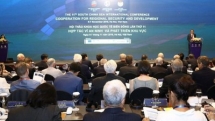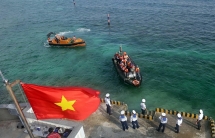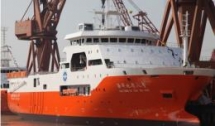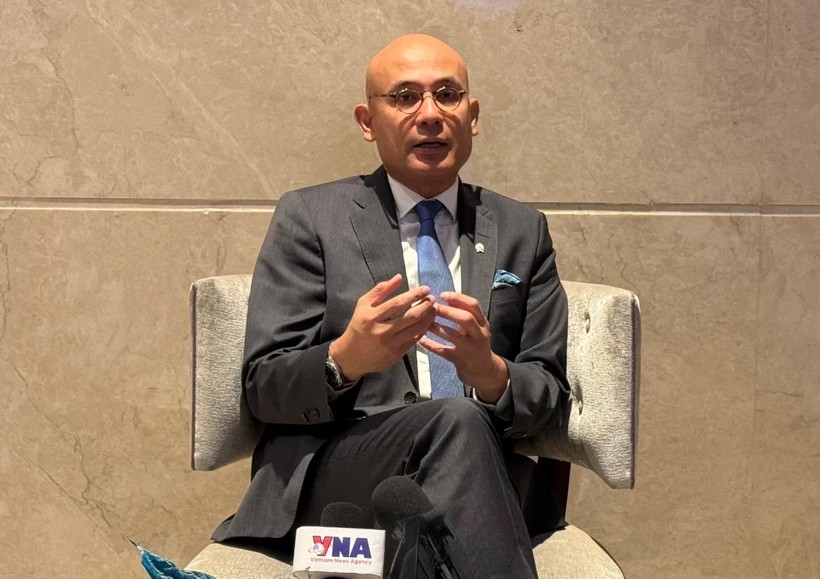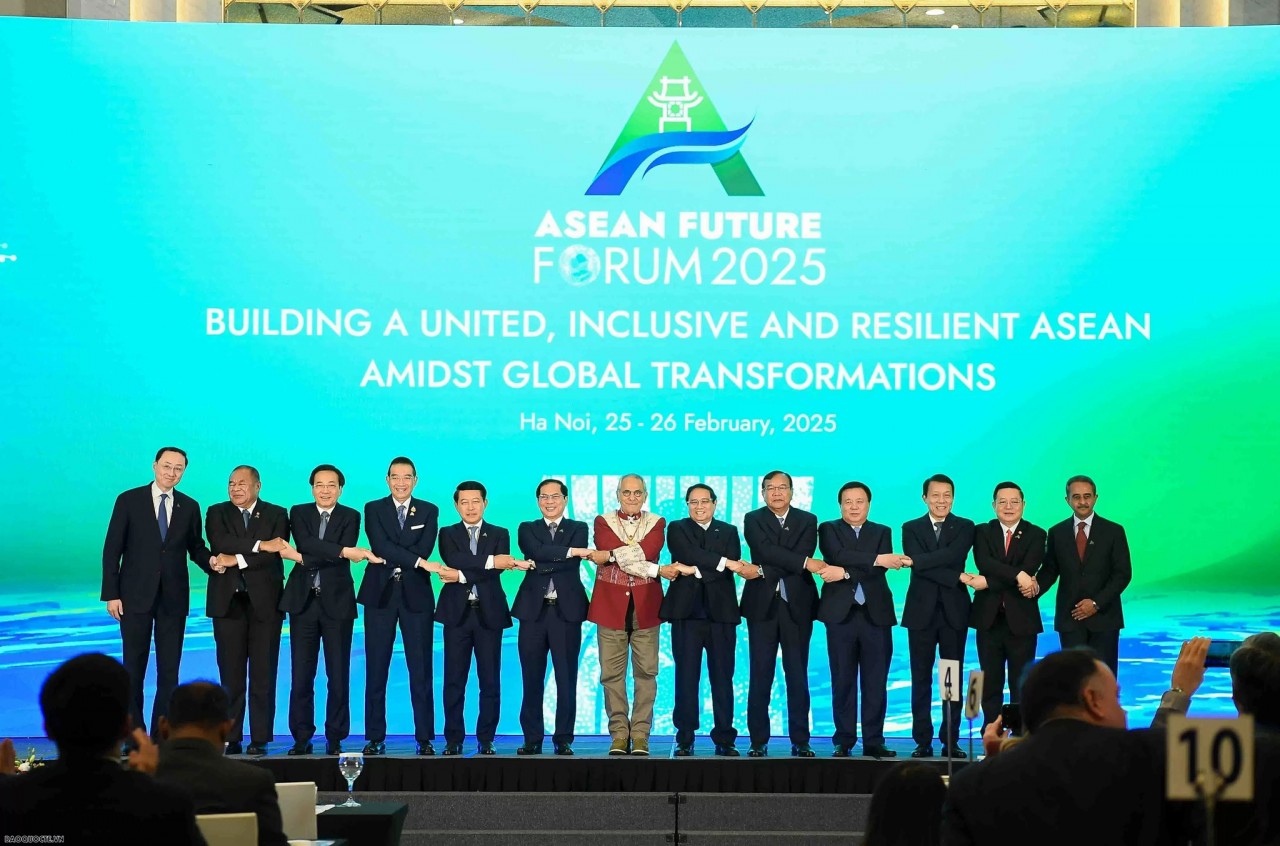US Defense Secretary urges ASEAN not to let China exploit COC
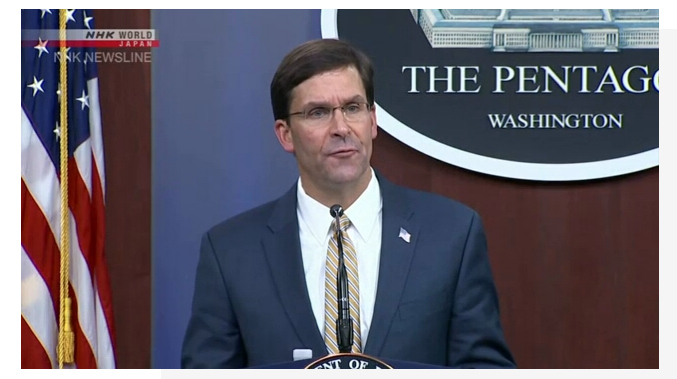 |
| US Defense Secretary Mark Esper. Source: NHK |
Esper met his counterparts from the 10 ASEAN member countries at the ASEAN-US ministerial meeting of the annual ASEAN Defense Ministers' Meeting-Plus on Sunday (Nov 17).
"China's activities there are a threat not only to other claimants and to many Southeast Asian nations, but to all trading nations who value freedom of the seas, and the peaceful settlement of disputes," Esper said at the meeting.
"(China's) maritime claims in the South China (East) Sea, exemplified by the illegitimate nine-dash line, are both unlawful and unreasonable, and counter to the July 2016 ruling of the UNCLOS Permanent court of Arbitration at The Hague," he said.
He said China's maritime activities have been confirmed in Vietnam's Exclusive Economic Zone (EEZ), and criticized Beijing for stepping up the use of what it calls "maritime militia vessels" to ward off Filipino, Indonesian, Malaysian and Vietnamese sailors and fishermen, as well as employing its coast guard to prevent Vietnam from "drilling oil and natural gas off its own shores."
"Through repeated provocative actions to assert the nine-dash line, Beijing is inhibiting ASEAN members from accessing over USD2.5 trillion in recoverable energy reserves, while contributing to instability and increasing the risk of conflict," Esper said.
"This behavior contrasts sharply with the rules-based order we have all worked together to build for more than 70 years," he added.
Esper said Beijing's "actions in the South China (East) Sea present a maritime challenge that requires a multilateral solution."
"I encourage you to use your sovereign spaces, as well as international ones, or risk losing them," he told his ASEAN counterparts, stressing, "multilateral approaches are key" and reaffirming Washington's intention to continue flying, sailing and operating "where international law allows."
"Together, we must stand for lawful uses of air and maritime spaces to push back against coercion and intimidation," he said.
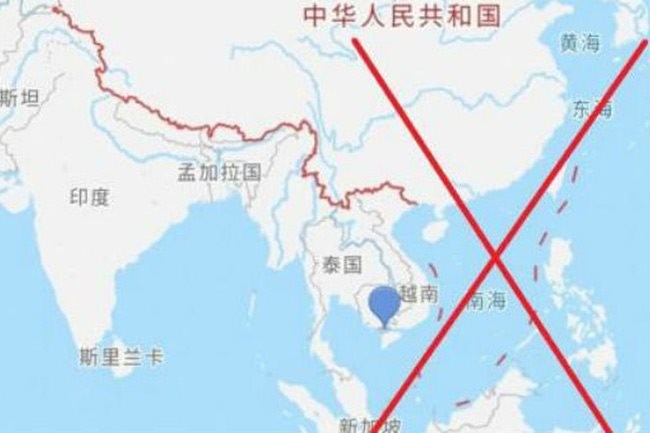 |
| China's so-called "nine-dashed line". |
Expressing skepticism over Beijing's "sincerity to negotiate a meaningful Code of Conduct that reinforces international law," Esper urged ASEAN not to allow the proposed set of guidelines "to be manipulated by the PRC to legitimize its egregious behavior and unlawful maritime claims, or to evade the commitments" it has signed up to.
He warned that "if this were to happen, the COC would be counterproductive and harmful to all who value the freedoms enshrined in the UN Convention on the Law of the Sea." The United States is not a signatory to the 1982 accord.
ASEAN and Beijing have been negotiating the guidelines, which will form the basis of future COC negotiations. Aimed at managing tensions in the East Sea, the envisioned COC is hoped to be fully negotiated by 2021.
At the ASEAN-China defense ministerial meeting earlier in the day, the East Sea issue was also raised.
The two sides agreed in principle to conduct a second joint maritime exercise following their inaugural drills in 2018, Malaysian Defense Minister Mohamad Sabu told reporters afterward.
Mohamad said ASEAN again requested that the COC be respected, and that Chinese Defense Minister Gen. Wei Fenghe responded that China is willing to work with ASEAN in addressing the sea dispute.
'Stop flexing muscles'
China on Monday (Nov 18) urged the U.S. military to “stop flexing muscles” in the disputed South China (East) Sea.
A spokesman for China’s ministry of defense, Col. Wu Qian, told reporters in Bangkok that the South China (East) Sea was among numerous issues discussed earlier in the day when U.S. Defense Secretary Mark Esper held his first face-to-face meeting with the Chinese defense minister, Gen. Wei Fenghe. They met for more than half an hour on the margins of a broader Asia defense officials’ conference.
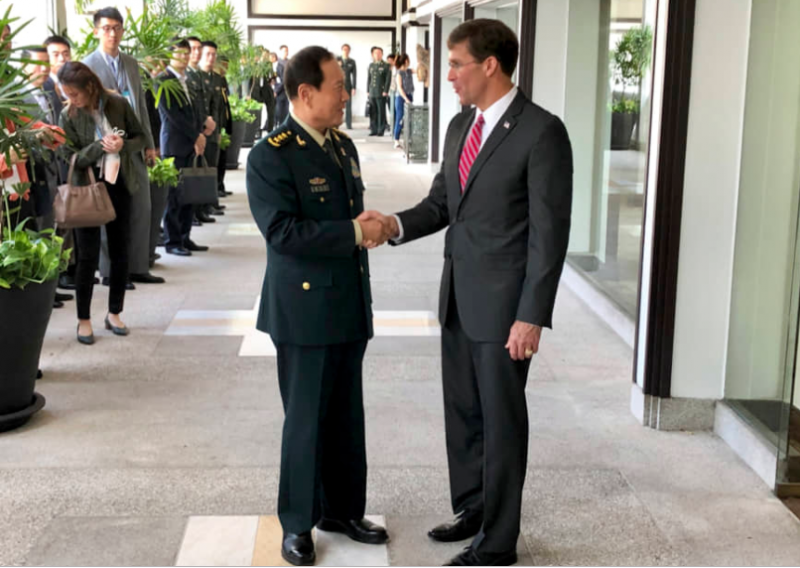 |
| Chinese Defense Minister Wei Fenghe greets US Defense Secretary Mark Esper in Bangkok on Monday. The two held their first face-to-face talks the same day. Photo: AP |
Wu, the defense ministry spokesman, told a news conference that Esper and Wei had a “very positive and constructive” meeting and had “agreed in many areas.”
But he was clear that Beijing is irritated at the US Navy’s presence in the South China (East) Sea. Wu said Wei had reaffirmed China’s commitment to safeguarding “territorial sovereignty and maritime rights and interests” in the South China (East) Sea.
“The Chinese side also urges the US side to stop flexing muscles in the South China (East) Sea and do not provoke and escalate tensions in the South China Sea,” he said through a Chinese interpreter. Asked by a reporter to be more specific about Chinese objections, Wu said the US should “stop intervening in the South China (East) Sea and stop military provocations.”
In topics
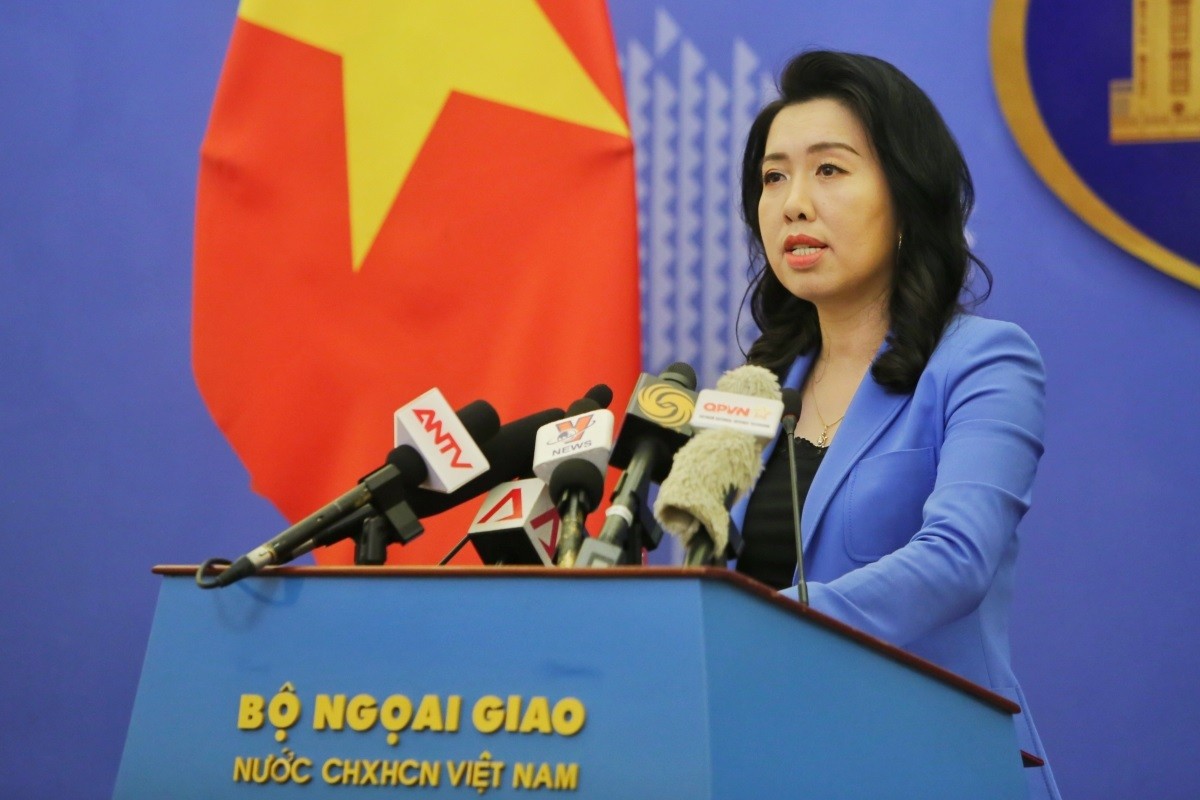 Seas and islands
Seas and islands
Vietnam Demands China Respect The Country's Sovereignty in East Sea
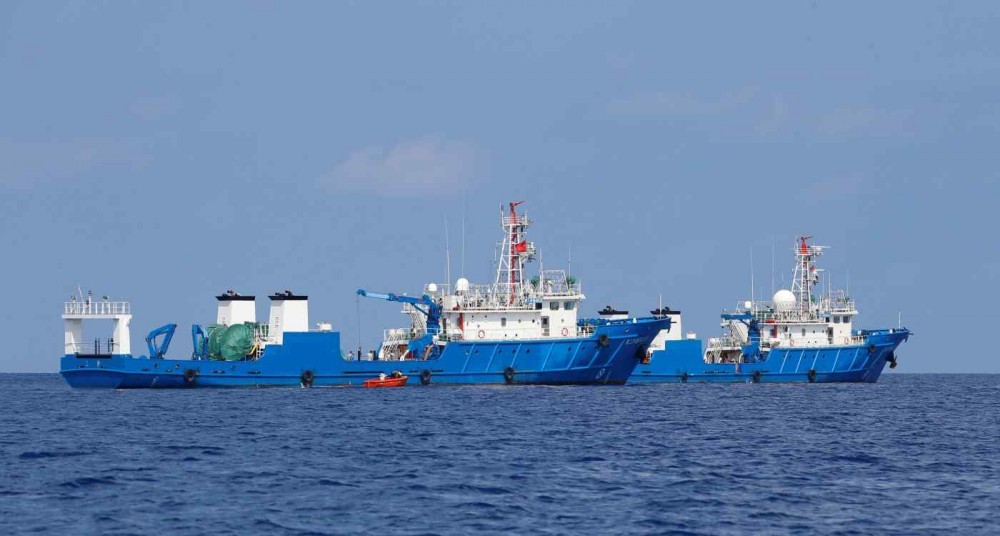 Focus
Focus
Promoting Substantive And Effective Code of Conduct in The South China Sea
 Seas and islands
Seas and islands
Vietnam's Coast Guard Creates Legal Corridor to Protect Sovereignty of Sea and Islands
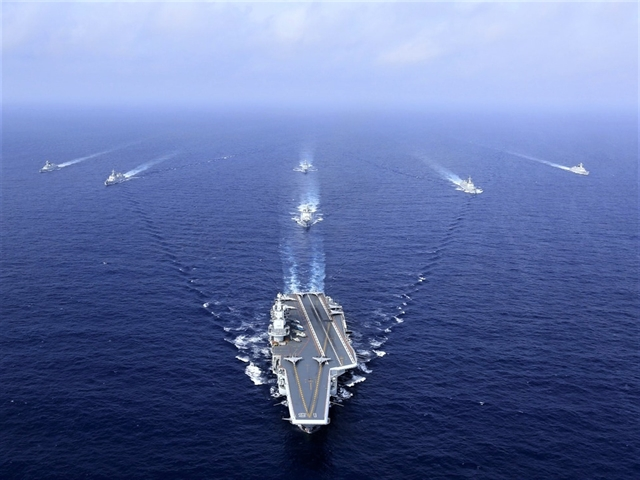 Seas and islands
Seas and islands
China announces naval drill in South China Sea (Bien Dong Sea)
Recommended
 Seas and islands
Seas and islands
RoK Navy Ship Pays Friendly Visit to Da Nang City
 Seas and islands
Seas and islands
Naval Region 5 Promotes Reading Culture, Fosters Patriotism
 Seas and islands
Seas and islands
Coast Guard Region 2 Command Hosts Philippine Coast Counterpart
 Seas and islands
Seas and islands
Vietnam - Thailand Navy: Coordination to Well Address Problems at Sea
Popular article
 Seas and islands
Seas and islands
Honoring the Fallen: Incense Offering for the 37th Anniversary of Gac Ma
 Seas and islands
Seas and islands
Vietnam Coast Guard Expands International Cooperation for Maritime Security
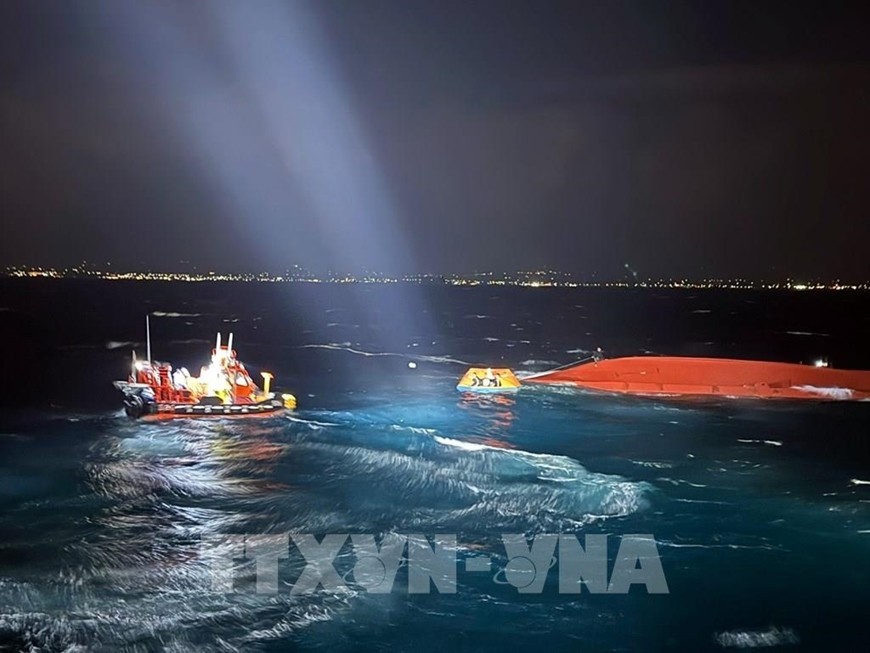 Seas and islands
Seas and islands
Three Vietnamese Fishermen Saved Off Jeju Coast
 Seas and islands
Seas and islands

